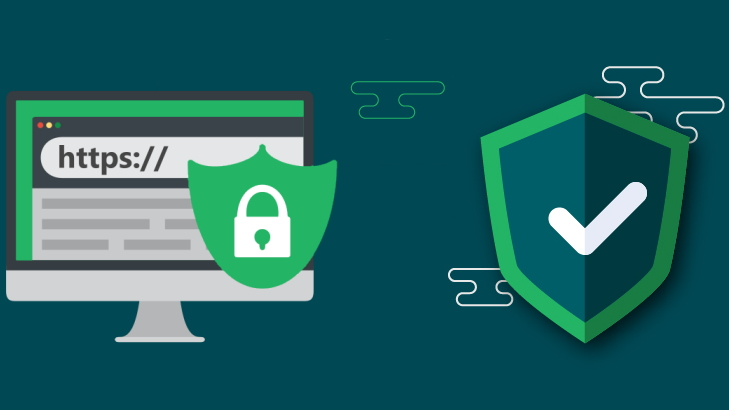What hosting to choose for a blog on WordPress
Building a successful WordPress blog starts with choosing the right hosting. Hosting is the foundation of your website, ensuring that it is available online. Choosing the right hosting can have a significant impact on page load speed, security, and overall site performance. In this article, we’ll look at the different types of hosting, the criteria for choosing them for a WordPress blog, and what to look for when making a decision.
What types of hosting are there
There are several types of hosting, each with its own features and suitable for different needs. Let’s take a look at the main types available on the market.
Shared shared hosting
Multiple sites are hosted on the same server and share common resources.
Pros: affordable price, ease of management. This is the most popular type of hosting, suitable for beginner bloggers and small sites with low traffic.
Cons: limited resources, possible performance issues due to server neighbors. If one site on the server is experiencing peak load, it may negatively affect your site’s performance.
Virtual Private Server (VPS)
A single physical server is divided into multiple virtual servers, each with its own dedicated resources.
Pros: more control and resources compared to shared hosting, good performance, has everything to host a website. You get a dedicated part of the server resources, which reduces the risk of your site being affected by other users.
Cons: higher cost, requires more technical knowledge to manage the virtual server.
Dedicated server
You get an entire physical server at your disposal.
Pros: maximum control and performance, the ability to fully customize to your needs. It is an ideal option for large sites with high traffic and specific requirements for server infrastructure.
Minuses: high cost, need for technical knowledge to manage a dedicated server.

Cloud hosting
The site is hosted on virtual servers that draw resources from a network of physical servers.
Pros: high scalability, reliability, the ability to pay only for the resources used. Cloud hosting allows you to easily adapt to changes in traffic and ensures high availability of the site.
Minuses: difficult to manage, possible unpredictable costs due to changes in the resources consumed.
Managed WordPress hosting
Dedicated hosting optimized for WordPress, with managed services (backups, updates, etc.).
Pros: optimized performance, security, usability. Such hosting often offers automatic updates, daily backups and specialized support.
Cons: Higher cost compared to shared hosting, limited flexibility in customization.
How to choose hosting for a WordPress blog
The choice depends on several factors that you need to consider to ensure the best possible performance of your website. The CMS developer recommends the following hosting specifications:
- PHP 7.4 or higher;
- MSQL version 5.7 or higher or MariaDB 10.3 or higher;
- https protocol.
What to look for when choosing a hosting service other than this:
- Estimate the expected amount of traffic to your blog. For small to medium-sized blogs with low to medium traffic, shared hosting may be sufficient. If high traffic is expected or you have complex functional requirements, consider virtual dedicated server or cloud hosting options.
- Choose a hosting service with high uptime (99.8% or higher). Check reviews of other users and ratings of hosting companies. The performance of your website directly depends on the quality of hosting, so pay special attention to this aspect.
- Make sure the hosting service you choose allows you to easily increase resources as your blog grows. A good hosting service should offer flexible pricing plans and the ability to seamlessly upgrade to a higher level of service as your site’s needs increase.
Also, look for hosting providers that offer features such as SSL certificates, protection from DDoS attacks, regular backups, and security monitoring. Protecting the data of your blog and its users should be a priority.
What you need to take into consideration when choosing a WordPress blog hosting service
It is important to consider several key aspects. Let’s look at them in more detail.

Latest version of PHP with customizability
This is necessary for the secure operation of your blog. Of course, the site will run on an earlier version of PHP, but because it does not have vulnerabilities fixed, the risk of being attacked is higher.
Automatic backups
Regular backups help you recover from force majeure. If you’re concerned about keeping your content consistently available to users, automatic backup functionality is a must.
24-hour support service
The support service will help you deal with any questions about the operation of the blog, deferred payments, and other technical issues. It should be on call at any time of the day, have several channels for communication with customers. Check how the service of the provider where you want to use hosting services works – call them at different times of the day and days, ask questions, listen to the answers, evaluate the quality of work and response.
Installed antivirus
WordPress is one of the most popular CMS with a huge number of plugins and templates. However, the popularity has another side – the increased interest in it of attackers aimed at hacking sites on WordPress. Antivirus will help to secure your blog from their encroachments.
CMS auto-installer
If you are creating a website on WordPress and plan not to limit yourself to a single web resource, the CMS auto-installer will help speed up the process of installing WordPress on a domain. You won’t have to deal with wp-config.php settings, transfer hundreds of files or entire databases.
Hosting costs
Must fit within your budget. It is important to consider not only the initial cost, but also the potential costs of upgrades and additional services. Compare different pricing plans and choose the one that offers the best value for money.
Download speed
It is important that the hosting service provides fast page loading times. Find out if the provider offers a CDN (Content Delivery Network) and uses modern technologies such as SSD disks. Fast page loading has a positive impact on user experience and SEO.
Control interface
A user-friendly control panel (e.g. cPanel) will simplify site management, especially if you don’t have deep technical knowledge. The control panel should be intuitive and provide all the necessary tools to manage your hosting and website.
Compatibility with WordPress
Choose a hosting service that offers specialized services and optimization for WordPress such as pre-installed plugins and themes, automatic updates, etc. Optimized hosting for WordPress provides better performance and makes your blog secure.
Additional services
Some hosting providers offer additional services such as free domains, website building tools, etc. This functionality can be useful and save you money.
Server location
Server placement affects the speed of access to your site for users from different regions. Choose a hosting service with servers located closer to your blog’s core audience to ensure minimal response time and fast page loads.
Conclusion
Choosing the right hosting has a direct impact on the success of your website. Consider the types of hosting such as shared hosting, VPS, dedicated server, cloud hosting and managed WordPress hosting. When choosing, look at technical specifications, performance, reliability, scalability, security, and customer support. Also consider upload speed, ease of management, and WordPress compatibility. A good hosting will ensure the stable operation of your blog, improve its performance and meet the needs of your target audience.







